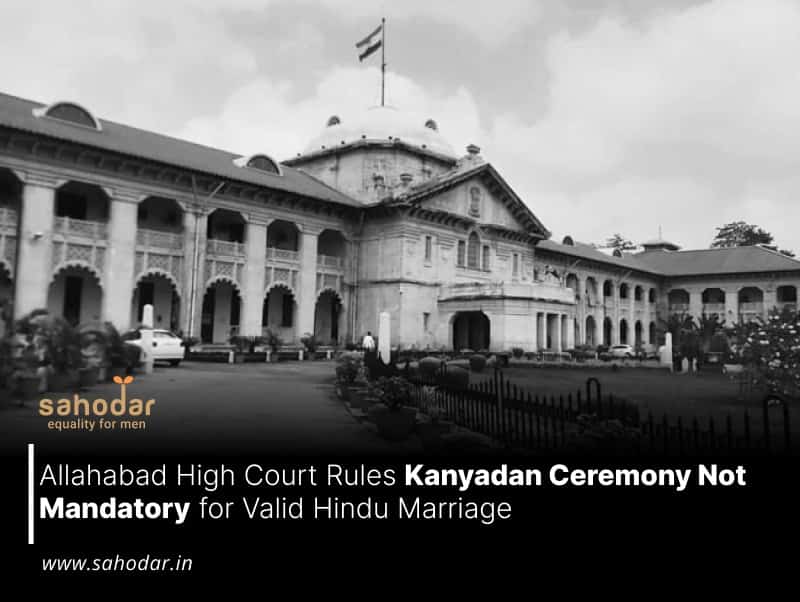The Hindu Marriage Act does not say that kanyadan is essential for the solemnization of a Hindu marriage, the Court noted.
The recent observation by the Allahabad High Court emphasizes that the ritual of ‘Kanyadan,’ where the father of the bride formally presents his daughter to the groom, is not obligatory for the validation of a Hindu marriage.
This determination was made by Justice Subhash Vidyarthi’s bench in an order issued on March 22, referencing Section 7 of the Hindu Marriage Act, 1955, which outlines the essential ceremonies for Hindu marriages.
“Hindu Marriage Act merely provides saptpadi as an essential ceremony of a Hindu marriage and it does not provide that the ceremony of kanyadan is essential for solemnization of a Hindu marriage,” the Court said.
Section 7 of the Hindu Marriage Act stipulates that a Hindu marriage can be solemnized according to the customary rites and ceremonies practiced by either party involved. It further states that if these rituals include the ‘saptpadi’—the bride and groom taking seven steps together around the sacred fire—the marriage becomes complete and legally binding upon the completion of the seventh step.
The Allahabad High Court’s attention was drawn to this provision during a hearing concerning a petition requesting the reconsideration of certain witnesses in a case being heard at a sessions court in Lucknow.
The petitioner alleged inconsistencies in earlier witness statements regarding a marriage certificate presented as evidence supporting a marriage that purportedly occurred in 2015. The petitioner contended that two witnesses, a woman, and her father, should be re-examined to determine if ‘kanyadan’ (the ceremonial giving away of the bride) was performed during the marriage, as it is traditionally considered an integral part of Hindu marriages.
On March 6, the trial court dismissed the petitioner’s request to recall witnesses under Section 311 of the Code of Criminal Procedure (CrPC), which grants courts the authority to summon witnesses deemed necessary for a fair adjudication of a case.
Challenging the trial court’s decision, the petitioner appealed to the High Court. However, the High Court affirmed the trial court’s ruling, stating that it was unnecessary to ascertain whether ‘kanyadan’ had occurred to establish the validity of the Hindu marriage in question.
“Whether the ceremony of Kanyadan was performed or not, would not be essential for the just decision of the case and, therefore, a witnesses cannot be summoned under Section 311 Cr.P.C. for proving this fact,” the Court held.
The Court further emphasized that the authority granted by Section 311 of the CrPC must not be wielded casually or merely upon the request of a litigant.
“There can be no denial of the fact that this Court has ample power to summon any witness under Section 311 Cr.P.C., the power cannot be exercised in a casual manner on the mere asking of a litigant. This power has to be exercised merely only when it is essential to summon a witness for a just decision of a case,” the Court said.
Based on these remarks, the Court rejected the petition requesting the re-examination of witnesses.

